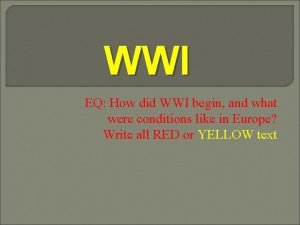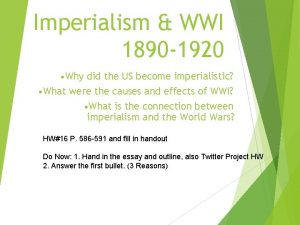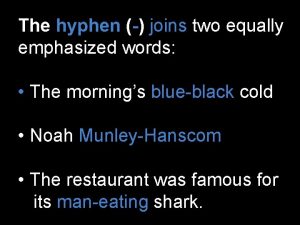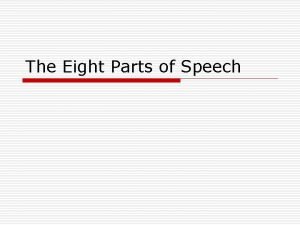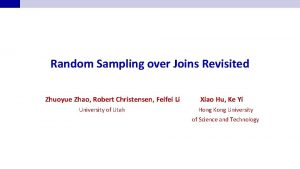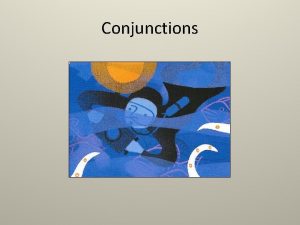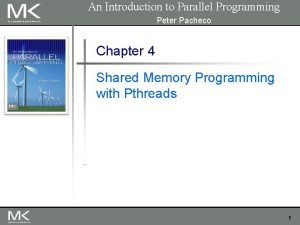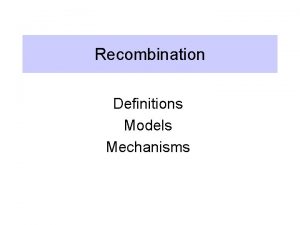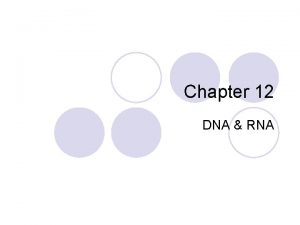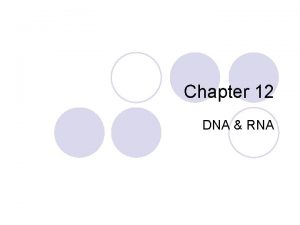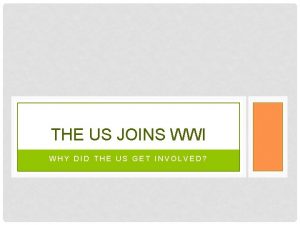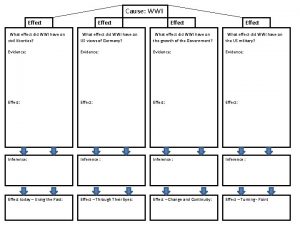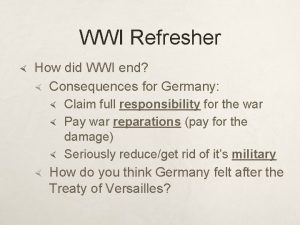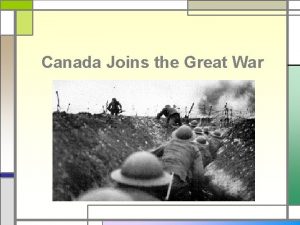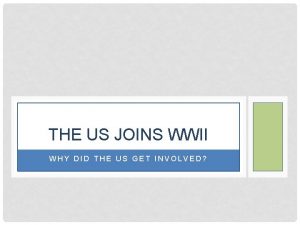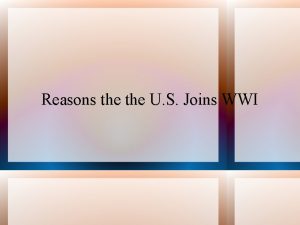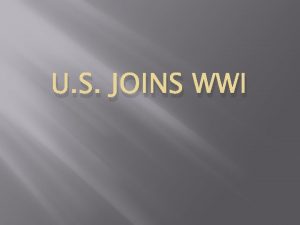THE US JOINS WWI WHY DID THE US













- Slides: 13

THE US JOINS WWI WHY DID THE US GET INVOLVED?

WWI • 1914 -1918 • Causes of WWI • Militarism • Alliances • Imperialism • Nationalism

AMERICAN NEUTRALITY • Between 1914 and 1917, America was able to maintain its neutrality • “We must be impartial in thought as well as in action. ” – Woodrow Wilson • As the war in Europe raged on, it became more and more difficult for Americans to remain neutral in thought…

SUBMARINE WARFARE • German U-boats attacked ships in the Atlantic, regardless of the ship’s involvement in the war • Lusitania • May 7, 1915 • British ship carrying 128 American passengers • Many Americans believed that this was a terrorist attack against innocent civilians.

PROPAGANDA • Anti-German sentiments (feelings) became more and more common • Propaganda • Liberty Sandwich • Liberty Cabbage

ALLIES • France, Russia, Great Britain, and later U. S.

CENTRAL POWERS • Germany, Austria-Hungary, Italy, and the Ottoman Empire

FOLLOW THE MONEY • US banks lent money to both Great Britain and Germany to fund their wars • Great Britain= $2 billion • Germany= $27 million • The losing side would most likely not have been able to pay back their debt • Which side would the US want to get back more?

THE ZIMMERMAN NOTE • By 1917, it was clear that most Americans sided with the British. • On January 16, 1917, the British intercepted a coded telegram sent by the German Prime Minister (Zimmerman) to a Mexican Ambassador • The British forwarded it to the US

THE ZIMMERMAN NOTE As you read the text, answer the following questions. 1. Do you think the United States should enter the war at this point? Why? 2. What suggestion would you give to President Wilson?

THE ZIMMERMAN NOTE • We intend to begin on the 1 st of February unrestricted submarine warfare. We shall endeavor in spite of this to keep the United States of America neutral. In the event of this not succeeding, we make Mexico a proposal of alliance on the following basis: make war together, make peace together, generous financial support and an understanding on our part that Mexico is to reconquer the lost territory in Texas, New Mexico and Arizona. The settlement in detail is left to you. You will inform the President of the above most secretly as soon as the outbreak of war with the United States of America is certain and add the suggestion that he should, on his own initiative, invite Japan to immediate adherence and at the same time mediate between Japan and ourselves. Please call the President's attention to the fact that the ruthless employment of our submarines now offers the prospect of compelling England in a few months to make peace. Signed, Zimmermann.

UNRESTRICTED SUBMARINE WARFARE • On February 1, 1917, Germany began unrestricted submarine warfare • Between February and March, 6 US ships were sunk • American citizens called for the US declare war.

WILSON’S ADDRESS TO CONGRESS • On April 2, 1917, Wilson addressed Congress, asking for a declaration of war against Germany • Wilson argued that: • The US had been unfairly attacked • The German government must be stopped • The US should “Make the world safe for democracy” • Congress declared war six days later
